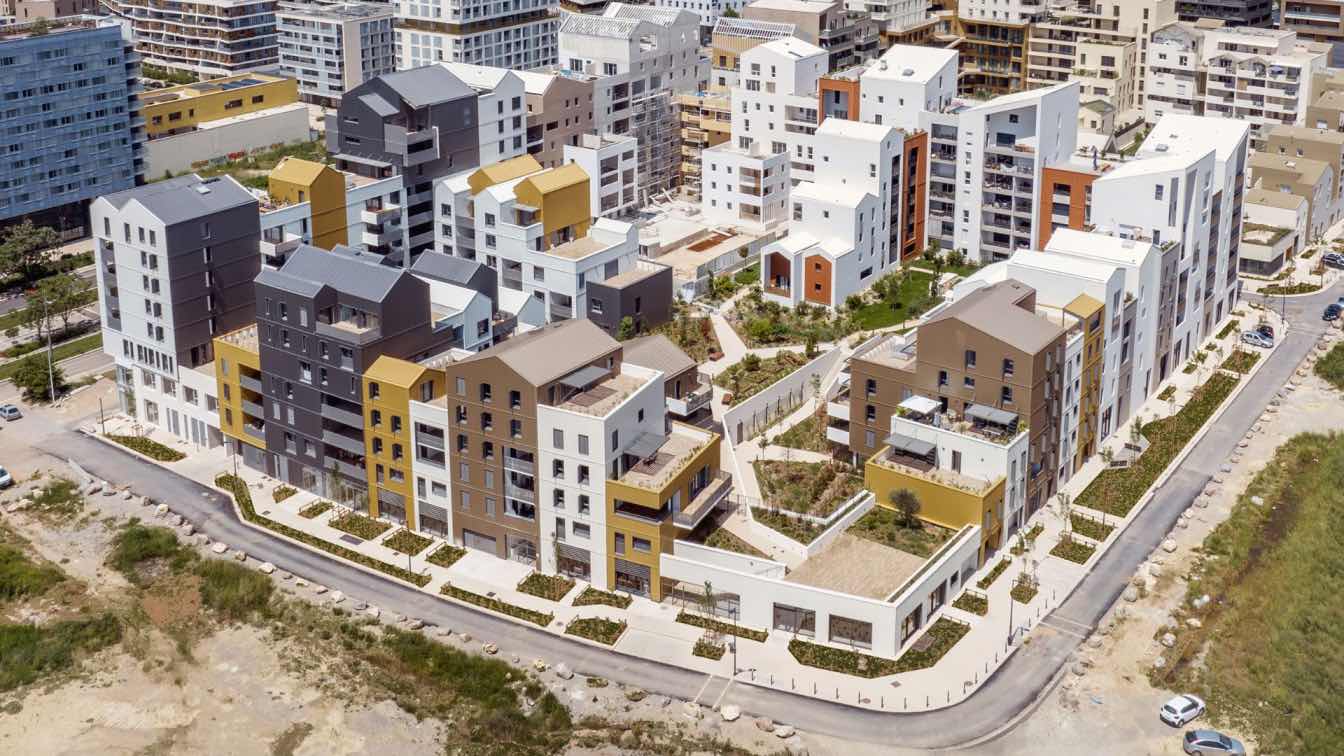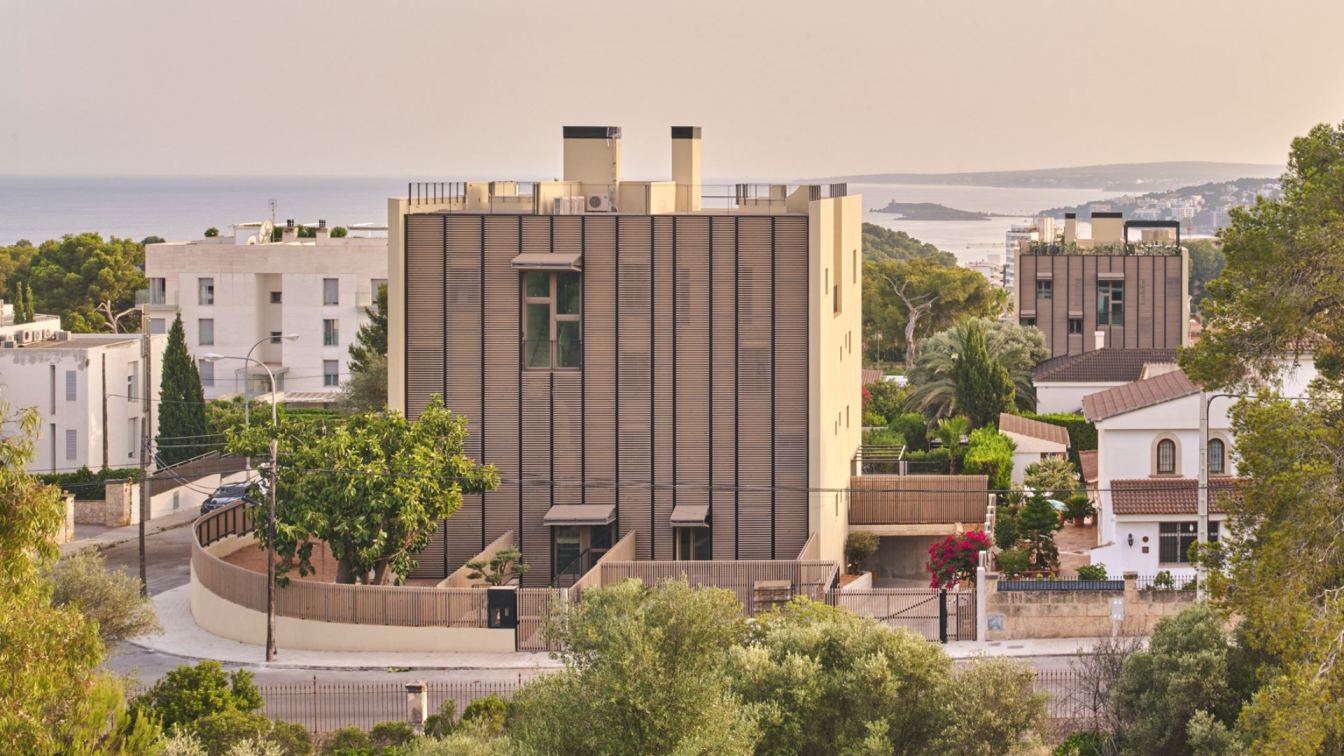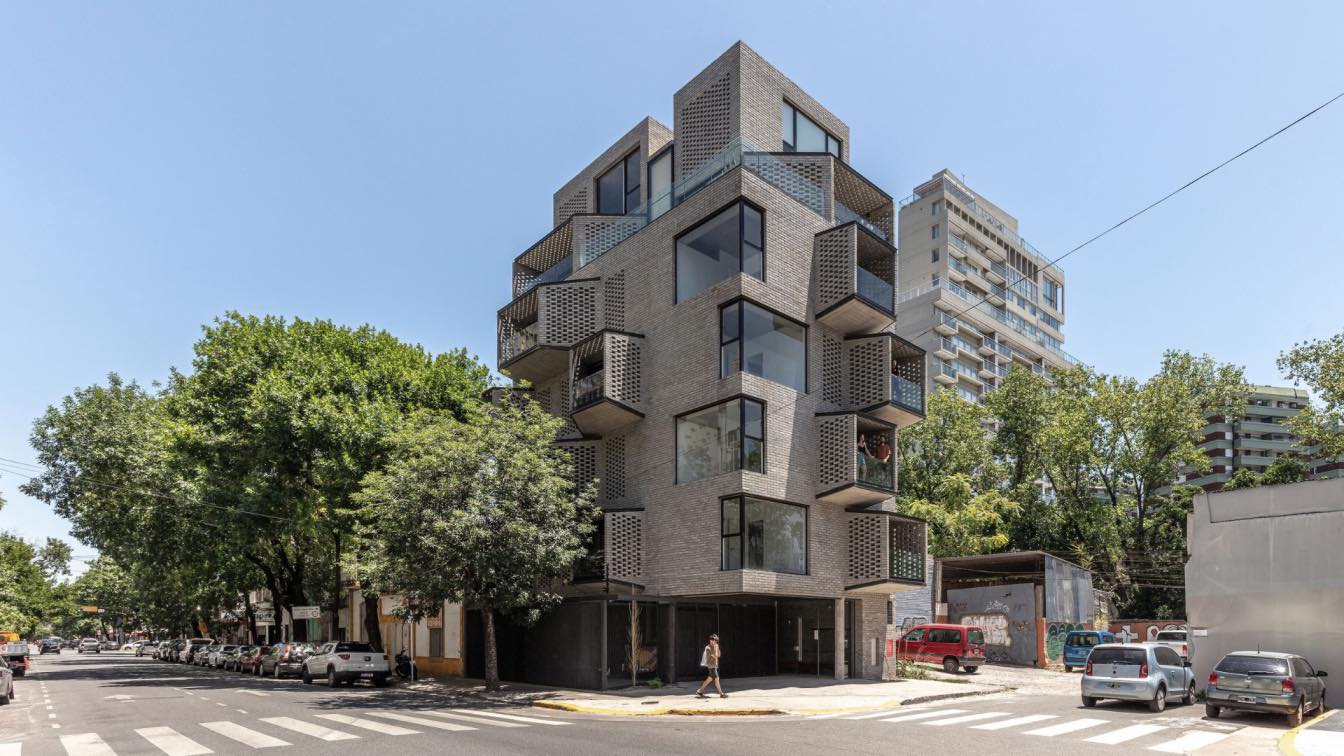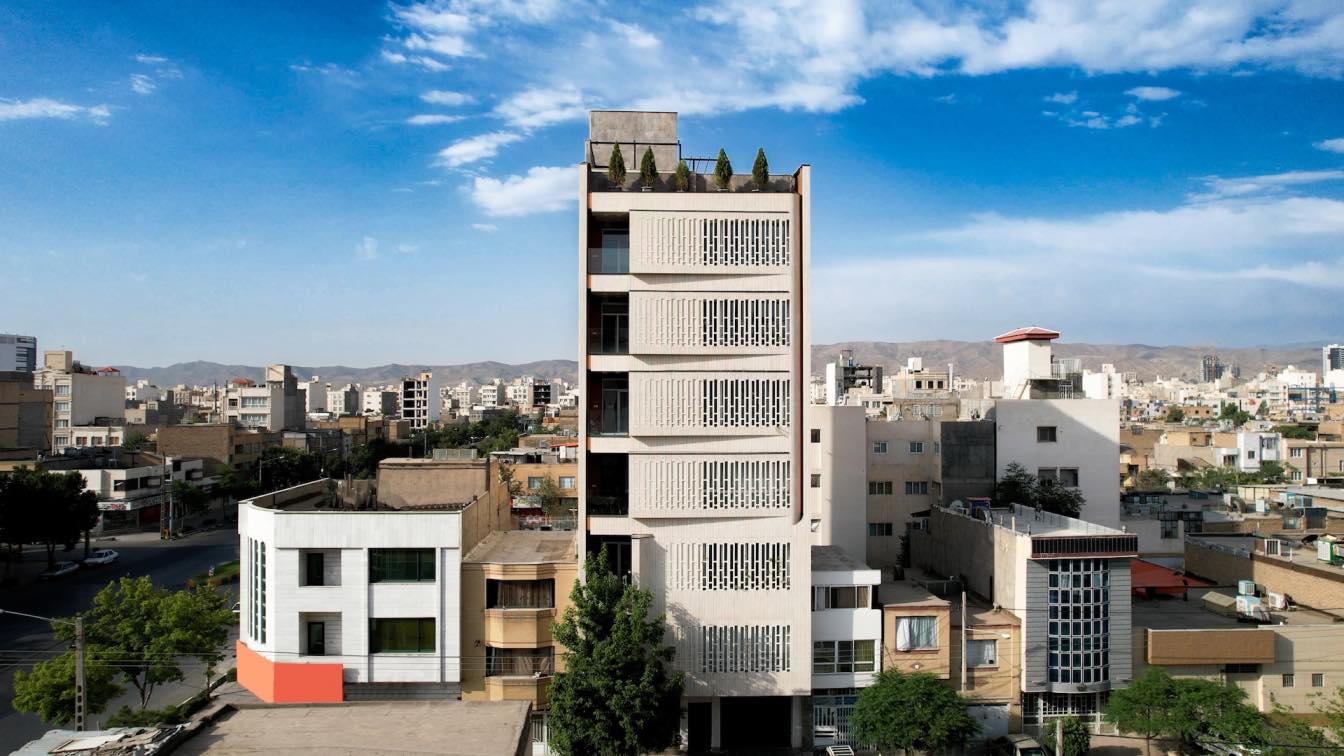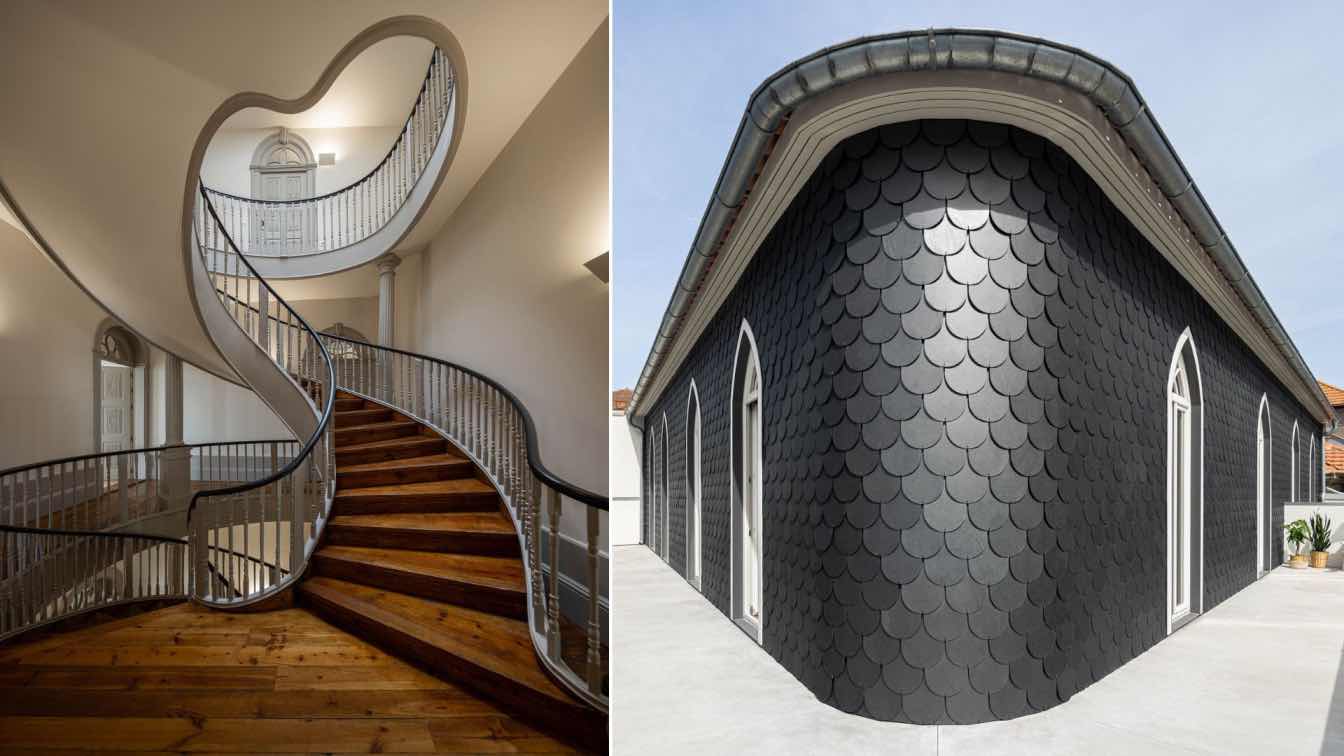In Montpellier, So Wood or the hanging gardens of Port Marianne
Context
An emblematic urban development project in the Montpellier metropolitan area, the Port Marianne district stems from an ambitious vision to extend the city towards the sea. To the west, on the banks of the Lez, the Port Marianne ZAC, developed by A+Architecture, marked the first step in this significant urban project. To the east, on the banks of the Lironde, the République ZAC designed by Nicolas Michelin represents the culmination, both physically and temporally, of this city extension towards the Mediterranean. It will extend beyond its boundaries by organizing the southern entrance of Montpellier and creating a new urban facade that is clearly visible from major national and international transportation infrastructures (A709, A9, and the high-speed rail line).
Due to its location along Avenue Raymond Dugrand, a major public space that connects the four operational sectors of the Port Marianne district, Lot E2 enjoys a unique position. It forms one of the twelve "neighborhood units" of the ZAC, innovatively accommodating a diverse mix of uses: active ground floors, offices, housing, workshops, and shared facilities. Figure of the dense and sustainable city, this lot supports contemporary architecture adapted to the Mediterranean climate and local living style.
The creation of an internal topography for each neighborhood unit, based on integrated (non- underground) parking, allows the formation of terraced inner courtyards oriented to the south with views of the "grand landscape." The architects from both agencies have effortlessly embraced the concept of the République ZAC, whose humanistic approach immediately captivated them.

The Project
So Wood is a mixed-use development comprising 105 housing units, 5 SOHO (Small Office Home Office) units, offices and shops, and 103 parking spaces, forming a unified architectural ensemble with each of the two architectural firms subtly marking their work. With a shared project owner (Icade / REI Habitat / Kalelithos), a common wood-frame construction principle, and a unified facade cladding – specifically, a metal siding in differentiated colors – along with shutters in either louvered or roller formats, the project achieves coherence through its diversity. The communal parking, topped with a substantial layer of soil, is now a wild garden and shared gardens.
So Wood offers an architectural journey from the public space to the heart of the privatecourtyard, treated as a true "suspended park," around which the entire development gently descends southward to open up to the sun. Equipped with spacious terraces, the majority of the housing units enjoy a dual orientation towards the city and the suspended garden, with views over the park.
This layout creates an unexpected intimate atmosphere in the heart of the courtyard, where vegetation provides essential coolness in a Mediterranean city center. The architectural design expresses a very urban verticality on the streets and a legitimate intimacy in the courtyard by breaking down volumes with well-identified buildings on a human scale, where everyone can recognize their home.
The diversity of the types of inhabited roofs (terrace roofs, sloped roofs, etc.) and housing – collective, intermediate, or individual – creates atypical apartments, giving their inhabitants a sense of individualization conducive to personal appropriation. Many of these units are cross- ventilated, and all have large private outdoor spaces. Thus, new ways of living are born.

Materials
Certified as Silver Level Occitanie Sustainable Building and bio-sourced building, the project had to embody the environmental and innovative challenges of this rapidly growing district. The choice of a comprehensive virtuous approach, exemplary energy performance, reduction of the carbon footprint, and the use of durable materials and construction systems naturally imposed themselves. In harmony with the omnipresence of greenery, wood is incorporated into every part of the project. It is expressed through a mixed structure, perfectly combining wood-framed walls, wooden beams, bio-sourced insulation, and concrete floors, suitable for a R+9 elevation and meeting acoustic and thermal inertia requirements.
This intersection of landscape and built environment, this nature that spreads and resonates throughout the project's architecture, extends to the roofs, whose slopes echo treehouses. The heart of the courtyard actively contributes to the protection and enhancement of biodiversity. In continuity with public spaces, this private area offers significant space for urban nature while providing a high-quality living environment for users and residents. For the facades, due to their significant heights, the choice was made for metal cladding, with materials and colors selected jointly by the two architectural firms, bringing a strong and unified identity to the entire lot.
Functioning / Circulation
The 105 housing units, many of which are accessed via walkways, are distributed across six buildings and six stairwells. Each lobby is directly accessible from both the public space and the central courtyard. Residents have the freedom to choose their paths. The sloping roofs are also inhabited (attics or loft spaces). The ground-floor apartments all have private gardens enclosed by planted beds and/or embankments that shield them from the communal area.
The ground floors and first floors (G+1) house commercial spaces with mezzanines, totaling 7 meters in height. The offices on the first and second floors (G+1 and G+2) create an intermediate level between the commercial spaces and the residential units, ensuring a seamless transition between these distinct volumes. A covered passage serves as the pedestrian entrance to the heart of the complex, accessible to the public during the day.

















